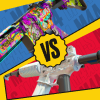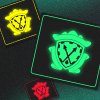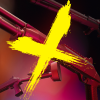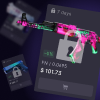Foul play is a very serious thing that can cost a career. There were many accusations in the history of competitive Counter-Strike: Global Offensive, and today CS.MONEY talks about the hunt for cheaters among the pros.
Doping and control
Cheats in esports are in some way similar to doping in traditional sports. Both of these things are tools for gaining an unfair advantage, and both of them can literally ruin players’ careers. Even a temporary ban from competitions can lead to the eternal ban from the upper echelon.
Interestingly, there were doping scandals in esports as well. The most famous case was the performance of Cloud9 at ESL One Katowice 2015. At the tournament, the team took 9th-12th place and a few months later the team’s ex-player Kory “SEMPHIS” Friesen, admitted in an interview that the whole team took Adderall during the performance.

Adderall is a combination drug usually used to treat attention deficit hyperactivity disorder (ADHD), and often abused by those who need to stay concentrated for long periods of time.
Later on, doping issues were raised at different competitions, and players still take random tests at LAN tournaments. However, there is no universal esports drug that can guarantee a more efficient play.
Cheats
Unlike Adderall and other drugs, cheating is well studied and can have a huge impact on the course of the game giving a player an unfair advantage. The cheating problem in Counter-Strike: Global Offensive is systemic and even the biggest tournaments face it regularly.
The most famous case was connected with the French player Hovik “KQLY” Tovmassian. On November 20, 2014, while playing with Titan, he received a lifetime VAC ban due to the use of cheats. The player confessed to using cheats only in rating matchmaking and on community servers but never in esports matches.
Hovik KQLY Tovmassian’s VAC ban caused problems for the whole team. Titan was removed from the DreamHack Winter 2014 tournament. Interestingly, in his statement, KQLY noted that he decided to try cheats after their creator convinced him that such software had been distributed to other esports players as well.
This fact is hard to verify, but besides Titan, Epsilon eSports also lost its place at DreamHack Winter 2014 due to a VAC ban.
False Accusations
Multiple incidents of using cheats triggered a real witch hunt in the CS:GO community. Allegations of cheating are being regularly raised. Most often they are aimed at young players who play in the FPL and other leagues.

In 2017, the famous pros JW, olofmeister, and dennis accused the Estonian player Robin Kool aka “ropz” of using cheats during qualifying and performing in the FPL. The 16-year-old player came under such a storm of criticism that he even had to move to London to play there under the supervision of FACEIT representatives.
Ultimately, Robin started to show even better results, and only after that, the charges of foul play were dropped, and soon the player received an invitation to join the Mouz team where he still plays. Other young talents, such as Mathieu “ZywOo” Herbaut, have also faced similar accusations.
The fresh case?
The last big scandal broke out during the regional qualifiers for cs_summit 6. This time, the Chaos players Nathan “leaf” Orf and Erick “Xeppaa” Bach came under suspicion. It all started with a tweet posted by Gabriel “FalleN” Toledo after losing a match with Chaos. The captain of MIBR said that some moments in the Nathan’s and Erick’s play seemed suspicious to him.

Following this, other influencers began to analyze their play. For example, the Brazilian commentator Alexandre “Gaules” Borba, who did not attend the match and did not stream it, issued suggestions that the outstanding performance of both players was the result of cheating software.
Many pros, such as Ropz, Zywoo, and device, stood up for the accused players. They noted that the accusations of using cheats are very serious and lead to enormous psychological pressure on players. The idea was also supported by media personalities such as DeKay, MosesGG, and others. All defenders insist on respecting the presumption of innocence and the inadmissibility of using clips with suspicious play as evidence.
This conflict has not yet been settled. The community continues to discuss the allegations and it is very unlikely that the case with the Chaos players will be the last one. Unfortunately, Valve’s anti-cheat software shows insufficient reliability and efficiency, and the developers have been working on alternative methods for solving the problem for several years.
Without Valve’s efficient and responsive anti-cheat tool, this kind of accusation and witch hunt is unlikely to end.












